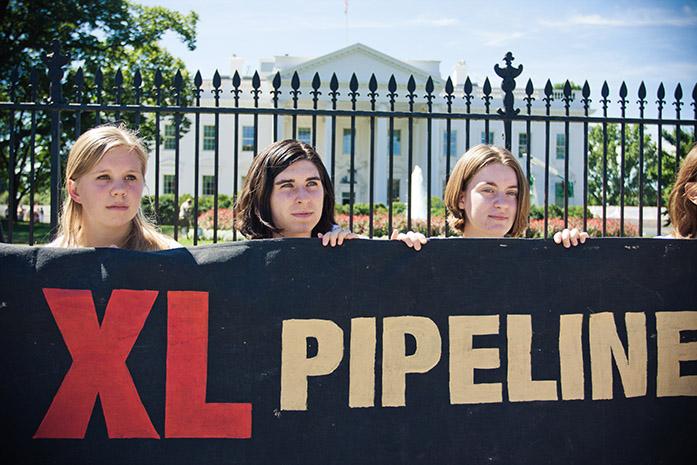The much-contested creation of the Keystone XL pipeline was resolved Nov. 6 with a decision by President Obama not to authorize construction. The proposed 1,179-mile pipeline between Hardisty, Alberta, Canada, and Steele City, Nebraska, would have been used to move barrels of crude oil; it became a point of contention on a much larger scale than simply moving crude oil from one place to another. Opposition to and advocacy for the construction of the pipeline ranged from job creation to possible adverse effects on the surrounding environment, but ultimately, the motivation behind deciding not to proceed was more symbolic than anything else.
Obama said “approving this project would have undercut that global leadership,” referring to the U.S. responsibility as a world leader to lead by example. Political and pragmatic issues aside, Keystone XL and the decision not to construct it symbolizes the U.S. commitment to realizing the goals and expectations set out to combat carbon-dioxide emissions and climate change.
With the upcoming U.N. conference on climate change in December, now more than ever it is imperative for the United States to demonstrate its willingness to set the tone for action as well send a message to apprehensive governments across the globe that there is unity in the decision to implement real change. Climate change is a global issue, and sacrifices will have to be made on the part of the individual for the betterment of the whole. Reform and progress come at a cost, and it is vital to maintain the importance of these changes despite the seemingly unfavorable decisions that must be made in the immediate.
Arguments can and have been made for Keystone XL’s construction, but the leader of a globally influential nation must keep in mind that the true scope of her or his constituency extends further than the borders. There are times, this being one of them, in which making decisions must not only include the immediate effect of the action but the outside perception of that action as well. The greatest criticism that can be made of a developed nation such as the United States is that the nation is not willing to adhere to the very policies it is attempting to set out.
Hypocrisy, or even the illusion of hypocrisy, will resonate loudly on a global scale in a voice that will ultimately drown out the murmurs of discontent among the domestic constituency. Furthermore, with an issue as fragile and daunting as the reduction of carbon-dioxide emissions, any threat to the solidarity among nations to the cause could serve to threaten any meaningful progress in the future. It is not enough to propose sweeping reform for numerous other nations to strictly follow without first displaying intent to follow the reforms as well. Those lacking a steadfast desire to do what is expected, as it provides an opening to criticize and validation for noncompliance, seek hypocrisy. Given the clout the United States wields, that hypocrisy cannot be shown, because it will certainly provide the rationale to slow the progress made toward countering climate change until it reaches a definite halt.










